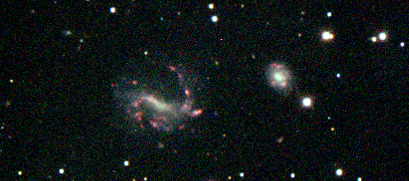
A recently discovered dwarf galaxy designated NGC1052-DF2 has been in the news lately. Apparently a satellite of the giant elliptical NGC 1052, DF2 (as I’ll call it from here on out) is remarkable for having a surprisingly low velocity dispersion for a galaxy of its type. These results were reported in Nature last week by van Dokkum et al., and have caused a bit of a stir. It is common for giant galaxies to have some dwarf satellite galaxies.







